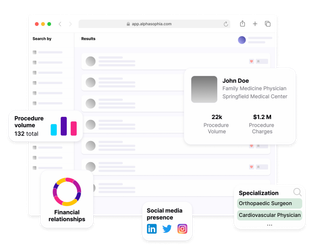Understanding OpenPayments and the Sunshine Act: A Brief Guide

In today’s healthcare landscape, transparency is a key factor in building trust between patients, healthcare providers, and the pharmaceutical industry. Two important components of this transparency are OpenPayments and the Sunshine Act. Let’s delve into what these are and why they matter.
What is the Sunshine Act?
The Physician Payments Sunshine Act, commonly known as the Sunshine Act, is a U.S. law enacted in 2010 as part of the Affordable Care Act. Its primary purpose is to increase transparency around the financial relationships between doctors, hospitals, and pharmaceutical companies. Under this Act, these companies are required to report any payments or other transfers of value they make to physicians and teaching hospitals.
OpenPayments: A Platform for Transparency
OpenPayments is a national disclosure program that supports the Sunshine Act. Managed by the Centers for Medicare & Medicaid Services (CMS), it collects and publishes information about the financial relationships between the healthcare industry and healthcare providers. This includes payments for things like research activities, gifts, speaking fees, meals, and travel.
Why are OpenPayments and the Sunshine Act Important?
-
Transparency in Healthcare: These initiatives bring transparency to the healthcare industry by shedding light on the financial interactions between providers and the industry. This helps patients understand the potential biases and influences in their care.
-
Informed Decision Making: Patients can use this information to make more informed decisions about their care. Knowing if a doctor has a financial relationship with a drug or device manufacturer can be an important factor in understanding treatment recommendations.
-
Preventing Conflicts of Interest: While collaborations between healthcare providers and the industry can drive innovation, there’s also a risk of conflict of interest. The Sunshine Act and OpenPayments help to manage these risks by making these relationships public.
-
Data Accessibility: OpenPayments provides accessible data for patients, researchers, and policymakers, aiding in various analyses and decision-making processes.
-
Regulatory Compliance: For healthcare providers and companies, compliance with these regulations is crucial to avoid penalties and maintain credibility.
How Can You Access OpenPayments Data?
Accessing OpenPayments data is straightforward and can be done through two primary methods:
-
CMS Website: OpenPayments data is publicly available on the CMS (Centers for Medicare & Medicaid Services) website. Patients can easily search for their healthcare provider and view detailed information about any payments or other transfers of value they have received. This platform provides a direct view into the data collected under the Sunshine Act.
-
Alpha Sophia: As an alternative, patients and companies can use Alpha Sophia, the leading commercial intelligence platform in the healthcare and medical sales industry. Alpha Sophia offers a powerful search tool that allows users to easily look for all OpenPayments attributes (such as manufacturers, natures of payments and specific products). What sets Alpha Sophia apart is its ability to combine this information with other powerful filters, such as location and speciality, providing a more tailored and comprehensive view of the US healthcare market. This platform is ideal for those who need a more in-depth analysis or who are looking for specific information within the vast data available under OpenPayments.
Understand OpenPayments using Alpha Sophia

Conclusion
The Sunshine Act and OpenPayments are essential tools in the pursuit of a more transparent and trustworthy healthcare system. By making financial relationships in healthcare public, they empower patients, enhance decision-making, and foster a culture of openness that is vital for the integrity of medical care and innovation.
Remember, an informed patient is an empowered patient, and these initiatives are steps in the right direction for healthcare transparency. Stay informed and take an active role in understanding the dynamics between your healthcare providers and the healthcare industry.
